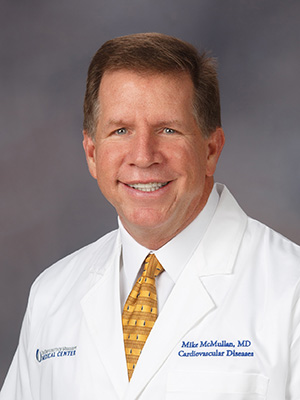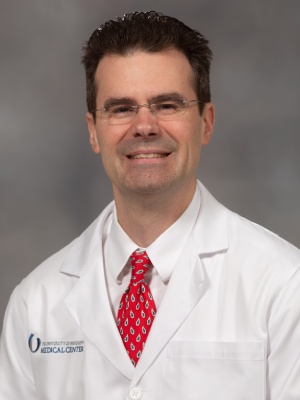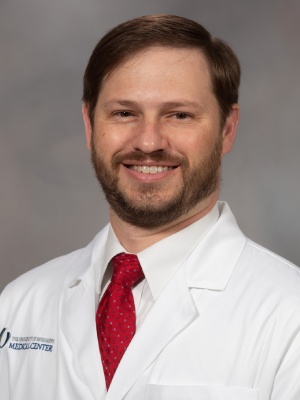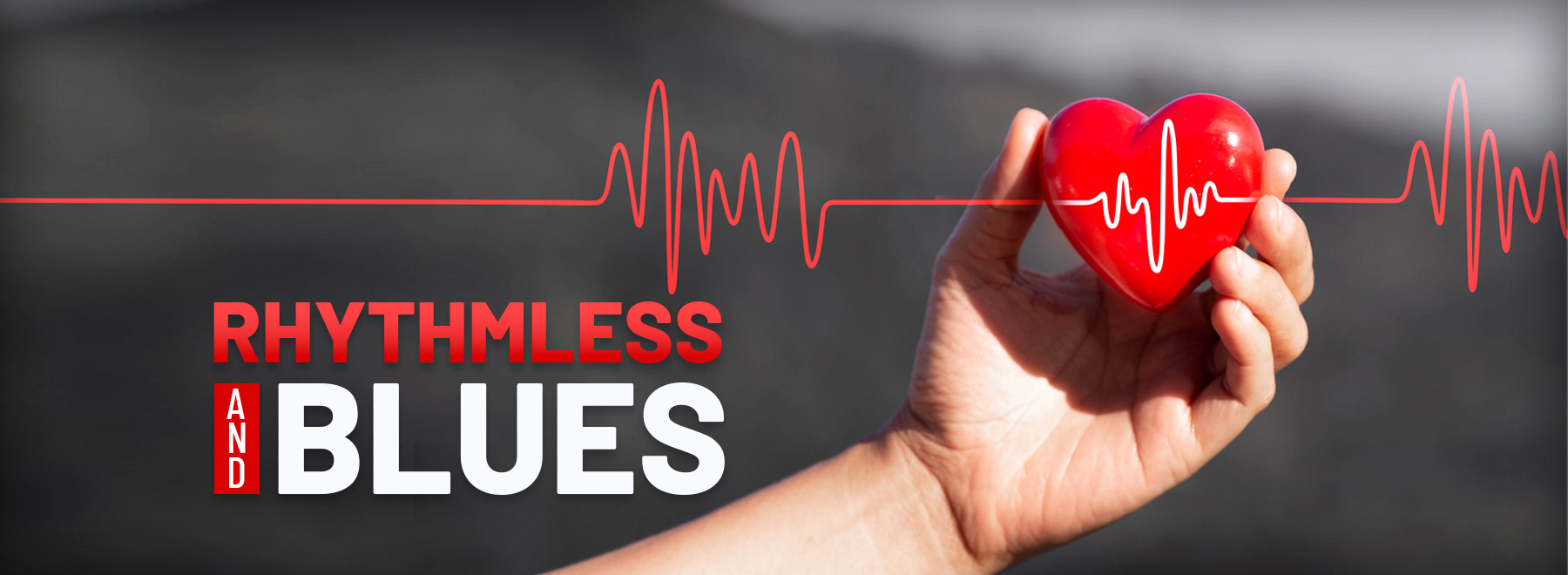Don’t let atrial fibrillation beat you down
Dr. Michael McMullan has a favorite riddle.
It’s one you might expect from a professor of medicine-cardiology at the University of Mississippi Medical Center and director of the Division of Cardiology.

“Why do you never lie to cardiologists?” he says. “Because they can always spot AFib.”
Being able to see through AFib, or atrial fibrillation, is a skill that can save patients’ lives. AFib significantly increases the risk of stroke, so, it’s crucial to prevent it or slow down its progression.

An irregular, rapid heartbeat, AFib is one of the most widespread cardiac, arrythmias, not just in Mississippi, but also in the entire U.S., said Dr. James “Mike” Bensler, UMMC associate professor of medicine-cardiology.
“It’s a disorganized electrical conduction in the top chambers of the heart, usually starting in the top left chamber and spreading to the right one.”
The occurrence of palpitations is “far and away” the most common symptom, McMullan said. Other warning signs are fatigue, shortness of breath, dizziness, lightheadedness, exercise intolerance and, in some cases, chest discomfort – such as fluttering or pounding.
“But about a third of those who have AFib have no symptoms,” Bensler said. With or without those signals, a stroke may not be far behind.
Beyond certain symptoms, you may learn you have the condition through health screenings, electrocardiograms, wearable cardiac monitors like an Apple Watch, or health monitoring sensors on a smartphone app.

As an electrophysiologist – a cardiologist who understands the heart’s electrical system and treats advanced heart rhythm problems – Bensler is particularly practiced at spotting and treating the condition. He and his fellow electrophysiologist, Dr. Jimmy Hamilton, associate professor of medicine-cardiology, were hired by the Medical Center years ago because of their expertise.
“Many patients who are at risk of AFib have had diabetes or uncontrolled hypertension,” Bensler said. Many had heart failure – that’s when the heart can’t pump enough blood.
“They may be patients who had a previous transient ischemic attack [often called a “mini-stroke”] – in which case they are more likely to have a second stroke,” Bensler said.
AFib is also associated with an increased likelihood of dementia, chronic kidney disease and death, McMullan said. Older patients are a favorite target.
“The prevalence rises from approximately 0.2% in adults under age 55 to about 10% in those aged 85 and older,” McMullan said.
“It may be either persistent, meaning it lasts longer than seven days, or paroxysmal – it terminates spontaneously over a matter of hours or days. Triggers for paroxysmal AFib include acute illnesses, such as pneumonia; surgery; heart attack; pulmonary embolism; thyrotoxicosis [high thyroid hormone levels]; and alcohol intoxication.”
Other risk factors for AFib include high blood pressure, obesity and sleep apnea – which is especially harmful. “The rate of patients with obstructive sleep apnea who also have AFib is about 50 percent,” Bensler said.
“It’s been shown that patients who did a really good job with controlling the risk factors had much lower rates of AFib. But the biggest factor was avoiding alcohol. There is no amount of alcohol that’s safe for patients with AFib.
“We recommend that they abstain from alcohol. The data is really clear-cut.”
To reduce your risk of AFib, also avoid using tobacco, take in no more than a moderate amount of caffeine per day, maintain a healthy body weight, get regular exercise, get your diabetes under control if applicable, and, if present, treat sleep apnea.
If you’ve been diagnosed with arrythmia, you’re already treating it when you take medications for underlying conditions such as high blood pressure, heart failure and overactive thyroid. Being treated for valvular heart disease, which means repairing the valve defect, could also reduce the risk of AFib, Bensler said.
When medications don’t work, a procedure known as an ablation may be called for. The removal or destruction of a body part or tissue, an ablation may be accomplished through surgery, hormones, drugs, heat or other means.
Electrophysiologists like Bensler and Hamilton, as well as cardiac surgeons, can perform a cardiac ablation by scarring or destroying in the heart the tissue that triggers or fosters the problem.
“Ablations work about 60% to 70% of the time,” Bensler said, “so, modifying risks is crucial as well and this must be maintained lifelong. An ablation will do no good if you go back to the lifestyle that increased your risk in the first place, such as drinking alcohol.”
The long and short of it is that healthy living goes a long way toward foiling AFib. And that’s no lie.
— — —
To make an appointment for cardiac services offered by UMMC University Heart, call 601-984-5678 or go online here. Procedures, such as ablations are performed there. Clinics for cardiac specialists are located at Select Specialty Hospital on Ridgewood Road in Jackson; call 601-815-2005.
The above article appears in CONSULT, UMMC’s monthly e-newsletter sharing news about cutting-edge clinical and health science education advances and innovative biomedical research at the Medical Center and giving you tips and suggestions on how you and the people you love can live a healthier life. Click here and enter your email address to receive CONSULT free of charge. You may cancel at any time.



